Legendary Jamaican ska singer, songwriter, record producer, and sound system operator of the 1960’s, Prince Buster, celebrated a birthday last week. The milestone revives memories of some of the most intriguing and dramatic episodes concerning Buster in early Jamaican music.
A man with extraordinary pugilistic tendencies, Buster was a Muslim, a boxer, and a self-acclaimed defender of the underdog. His pugilistic abilities were put to the test as a strong-armed gateman at Clement Dodd’s (Coxson) dances during the late 1950’s. Buster, whose correct name is Cecil Campbell, revealed to me in an interview some years ago that he viewed Coxson then, as an underdog in the sound system business when compared to others like, King Edward ‘The Giant’ and Duke Reid ‘The Trojan’, and being a defender of the underdog, he came to his assistance, sometimes challenging the powers of Duke Reid ‘The Trojan’, and a Back-o-Wall gang.
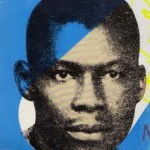
“Me is always the man who will go with the underdog. I am the protector of the underdog, and I became the man for him,” Buster said in the interview. He was in fact a fearless youth who grew up under tough conditions in the Luke Lane, Charles Street, and Orange Street corridors of West Kingston, where he was born in 1938, and took on the name Buster, after Independent Jamaica’s first Prime Minister, Sir Alexander Bustamante.
The sound system business in those days was a tough concern, which saw frequent fights breaking out between strong- armed supporters of rival Sounds. Somewhat similar to today’s political activists, they were aligned to a particular sound system, and would disrupt and crash opposing ‘sounds’ in an effort to keep their sound on top. Buster wasn’t one of those. He was the one who prevented such happenings at Coxson’s dances.
Making it clear that he never worked with Coxson, Buster went further with his assistance to Dodd: “I was the man who go a the dance and listen to the records that Duke bring in, some of them labels scratch off, but I could still tell Coxson the artist so he could buy them in America.”
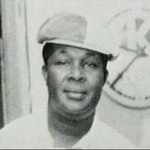
With his vast knowledge of the American rhythm and blues records, Buster soon decided to get into the sound system business as well, and in fact, began building his sound, which he called The Voice of the People, while still with Coxson. The move created the earliest niggling between both men, which later escalated into a musical war of words. Dodd began seeing Buster as his competitor, and a staunch one, too, based on Buster’s vast knowledge of the records.
Buster was on the verge of travelling to America, via the farm work program, like the others did, to purchase records to compete against the likes of Coxson, King Edward and Duke Reid, when he was unceremoniously stopped by an immigration official: “Is go wey mi a go wey the morning yu kno, and the man (immigration official) jus come and say, ‘Mek me see yu hand middle; this hand can’t cut cane’.” Buster is adamant that it was a set-up designed to prevent him from dethroning the other sound system giants. That stumbling block became a stepping stone which spurred Buster into becoming a recording artist and a record producer. According to him, “That cause me to turn to Drumbago, doing rehearsals night after night and giving him my style”. Between 1961 and 1964, Buster created and produced hundreds of top-class ska recordings in the instrumental and vocal styles for himself and various artists, which temporarily dethroned Dodd, Reid and Edwards, who also became record producers. In his repertoire, Buster recorded songs aimed at the three sound giants in response to what he called, “a combined onslaught” against him. Songs like: The Duke, The Kings and The Sir; They Got to Go; and They Got to Come My Way, all done between 1961-1962, were aimed at all three, while One Hand Wash the Other, was a scathing attack on Dodd:
“And every bad move they try,
I pass them by and by.
I leave them to cry.
They might even die.”
Sir Coxson Dodd responded via Delroy Wilson’s recording, Joe Liges in late 1962, rebuking Buster with:
“Don’t you criticize
your name is Joe Liges.
One hand wash the other
but you don’t remember your brother.”
- Leslie Kong
Musical Clashes
Further chastisement for Buster followed in the Delroy Wilson classic, Remember Your Nest. It contained the warning:
“Don’t you forget that nest where you used to rest.
For you, the Sir has done his very best.
You are ungrateful to call him a fool.”
But perhaps the most exciting episode surrounding Buster’s career were his musical clashes with his close friend Derrick Morgan. Notoriously known as ‘The Musical War’, it began when Morgan recorded the Independence-influenced song, Forward March, for the Chinese record producer, Leslie Kong. Buster claimed that a saxophone solo which Morgan used on the song, was copied from one he created and used on one of his previous recordings. This, Buster claimed, was stolen from him and given to the Chinese producer. Buster’s fury may have been exacerbated by Morgan’s sudden departure from his stables to work for Kong, and he duly termed Morgan a ‘blackhead Chineyman’, voicing his dissent in a recording of that same name:
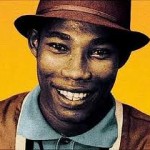
“You stole my belongings and give to your Chineyman.
God in heaven knows that you are wrong.
Are you a Chineyman, or are you a blackman?
It don’t need no eyeglass to see that your skin is black.
Do you prefer your Chineyman to your fellow blackman.
Speak up friend, it plain to understand.”
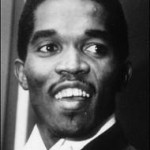
Several musical exchanges on the topic followed, with factions getting involved. The issue was finally resolved, when the government of the day arranged for both men to be pictured together in a friendly way for the press, and to issue a statement that despite the rhetoric of the songs, the two were the best of friends.


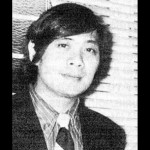
You must log in to post a comment.